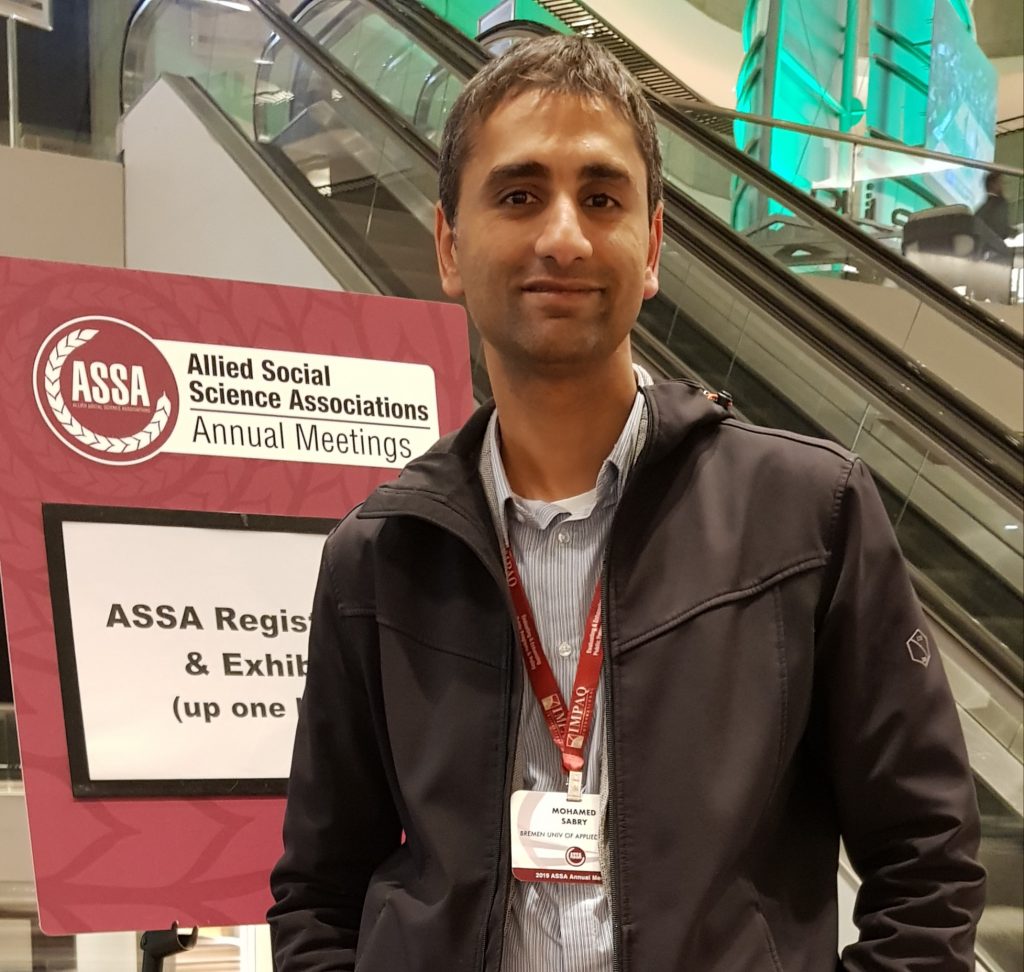2022
Project: State-Society Relations and Growth Paths in North Africa
Dr. Mohamed Ismail Sabry
(Lecturer, Fresenius University of Applied Sciences and Bremen University of Applied Sciences / Germany)
Mohamed Ismail Sabry is a visiting postdoctoral researcher at the International Institute of Social Studies (ISS) at Erasmus University Rotterdam and a lecturer at the Fresenius University of Applied Sciences (Hochschule Fresenius) and the Bremen University of Applied Sciences (Hochschule Bremen). He received his PhD in Economics from Philipps University Marburg in 2013, with his BA and MA from the American University in Cairo (AUC). His professional experience includes working in the development field on a United Nations Development Program (UNDP) project in Cairo and another project in Berlin funded by the German Foreign Ministry.
Sabry’s academic interests include institutional economics, economic development, political economy, and the Middle East and North Africa (MENA) region, and his research focuses on state-society and state-business relations. He has published several books in English and Arabic and several academic articles in various peer-reviewed journals.

Project Resources & Sustainability
This research examines the growth trajectories that develop from existing state-society relationships in North Africa. It plans to conduct a comparative analysis of these relationships and the resulting paths in three key North African countries: Tunisia, Morocco and Algeria.
State-society relations will be analyzed on the basis of state-firm-union relations (SFERs), i.e., the power relations between the main actors in the industrial sector of the countries studied: the state, large businessmen (tycoons), owners and managers of small and medium-sized enterprises (SMEs) (businessmen), and unions. Several modes of REES are identified, including cronyism, state capture, balanced lobbying and state domination. REES shape policies, regulations, legislation, and their degree of enforcement, leading to a unique industrial policy profile for each country. The resulting industrial policy then leads to different growth trajectories. In the proposed research, growth trajectories are considered in terms of a matrix of long-term growth levels, equality, and environmental sustainability.
The three North African countries have developed different REES during the post-colonial period and these relationships are still evolving. The proposed research will rely primarily on a comparative case study approach, using qualitative data supported by statistical data analysis. Data will be collected from both primary and secondary sources. Primary sources will be generated from interviews conducted primarily with key members of business associations, NGOs, academic and business experts, and (possibly) government officials involved in industrial policy. Secondary sources will be obtained from various publications of ministries, business associations, trade unions and international organizations. They will also include quantitative data on relevant industrial statistics obtained from international organizations.
Contact: misabry[at]hotmail.com
For more information:
